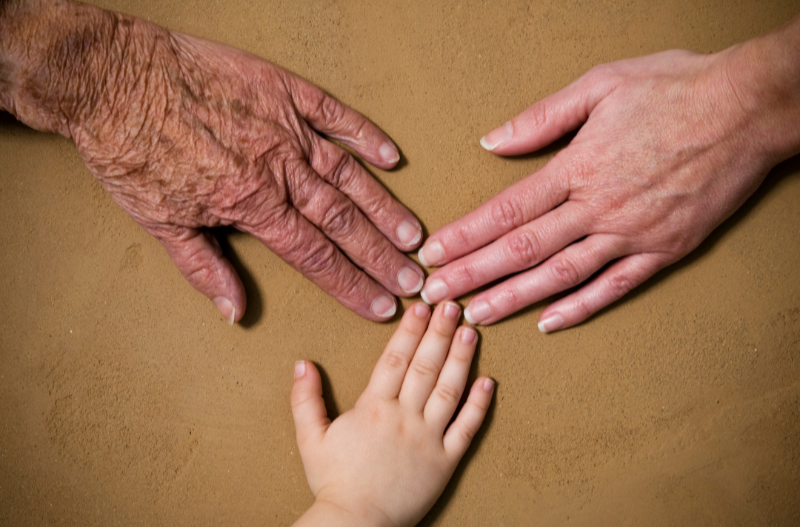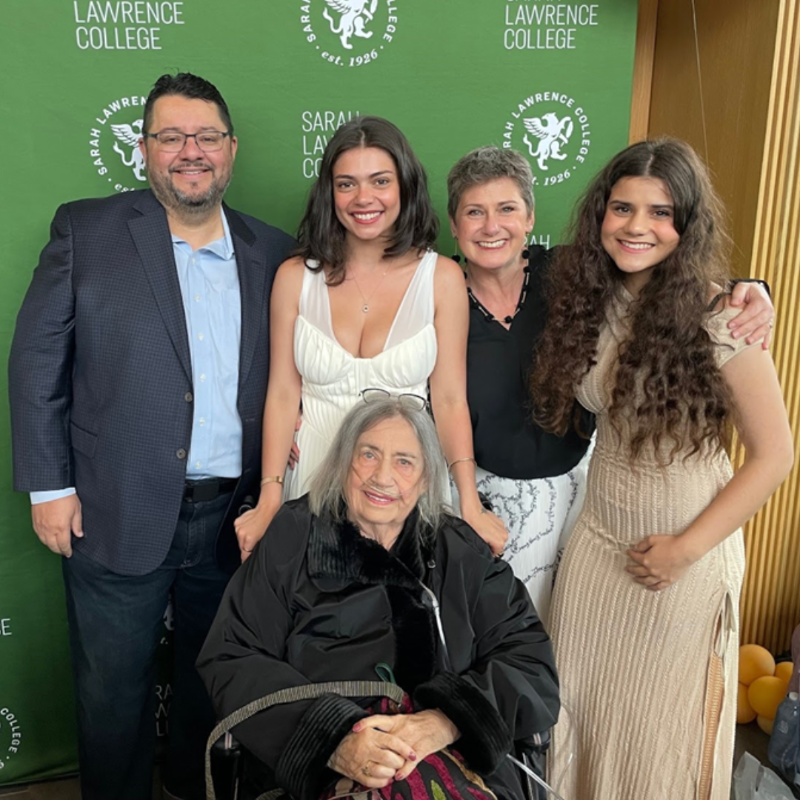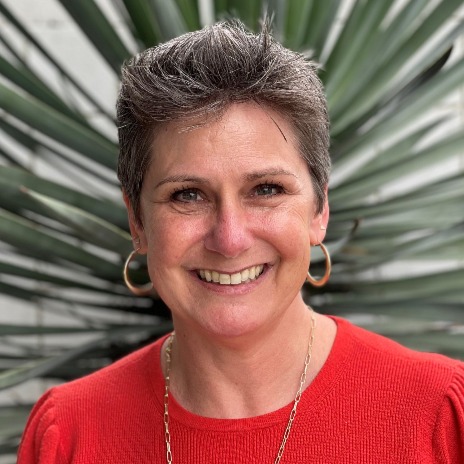HayU Blog
A Tale from the Sandwich Generation: Parenting Your Parent
November 2nd, 2024
I’m struck by the similarities in the parenting skills I’ve called on in dealing with my young adult daughter and my aging mother. As my mother’s health and cognition continue to decline and my young adult daughter continues to grow and develop more independence, the similarities are steadily decreasing. But in the past couple of years, it has felt like their two roads are converging in an intersection. I am the traffic conductor, stuck in this intersection with the lights out, trying to direct the traffic but ultimately unable to control their decision-making as the drivers of their own lives. In both cases, I’ve needed to support my loved ones with complex medical issues, doctor appointments, note taking, record keeping, follow-up, bill paying, and emotional support. I see their roads starting to depart the intersection and go in opposite directions. One toward independent adulthood, the other toward continued decline and eventual death. I still feel like I’m in the intersection, but I'm starting to feel less stuck and able to see the light at the end of the tunnel, when I’ll be able to leave the intersection and resume forward motion on my own road.

It has been over 10 years since I first entered the dreaded “sandwich generation.” But it was not until four years after my father’s passing and four years into supporting my mother’s needs that I finally raised my white flag of surrender and sought out therapy after reading this article. I was motivated to seek help specifically to deal with my own mindset, communication, and actions in my relationship with my mother. I felt guilty for getting mad at her and frustrated that I could not will myself into having more patience. I was filled with worry for my mother and felt stuck because I couldn’t control the situation as entirely as I wanted to or fix things as quickly as I thought they should be fixed.
My mother and I have always had a close relationship, one I’ve considered to be good on a bad day and fantastic on a good day. But like most mothers and daughters, we’ve had our fair share of disagreements, pushed each other’s buttons, hurt each other’s feelings, and have had to adapt as each of us evolved as individuals and as our life circumstances changed. Unsurprisingly, our relationship became strained during the often inevitable and always unwanted role reversal of adult children having to care for their parents.
I love my mother dearly. And despite her faults, she has been an amazing, caring, and generous mother to me and grandmother to my children. It’s her turn. I want to care for her as best I can. I promised my dying father I would. She deserves all of the time and attention I can spare and my enormous gratitude. But it’s not easy. And it has been especially hard during the slow but sure onset and diagnosis of her dementia.
My mother’s cognitive decline has been more difficult to navigate, more heartbreaking, and more frustrating than all of the physical ailments combined. Getting her to accept the help and give up autonomy has been a painful and time-consuming battle filled with strife. It has required more patience than I have. Part of what I learned with my therapist (experienced in geriatrics), is that I needed to stop trying to convince my mother that her cognition was declining. Her inability to comprehend and accept this fact is part of the disease itself. I needed to stop correcting her, to stop pointing out her memory lapses. I learned to stop saying, I know, you already told me that; no, that’s not what happened. As I did when my children were young, I learned to deflect and redirect. To nod and agree. Yes, that was so funny; yes, I remember you loved that. To bite my tongue, to listen to the same story and answer the same questions over and over. When my mom is at her worst, our closeness is now more about physical connection and being present together in the moment. Holding hands, rubbing her shoulders, watching TV together, playing a game. It’s less about talking about my life, my children, and the world, less about the friendship and camaraderie we used to share. This IS a loss, and it’s important to let myself grieve that loss.
I stayed in therapy for about a year and a half, stopping when I felt I’d achieved sufficient acceptance of my situation, sufficient acceptance of my mother’s situation, and sufficient resetting of my own mindset. Getting my mom through some of the biggest hurdles between her former independence and her new state of dependence also enabled me to settle down, feel less anxious and out of control, to reach a new level of comfort, realistic expectations, and ‘go with the flow.’ In the past year, my mother has gotten an updated neurological evaluation, has stopped driving, has accepted 24/7 care in her home, and slowly but surely, has relinquished more and more control over her finances, medications, and doctor communications.
Despite so many blessings and resources, and two siblings living within 20 minutes of our mother, my brother and I have frequently felt overwhelmed by all there is to do to help manage our mother’s finances, her physical health, her mental well-being, and her house maintenance and repairs. All the while, we try to balance caring for our own children, attending to our own spouses, maintaining and repairing our own houses, running our own business, and last and always least, attempting to care for our own aging and needy bodies and minds.

I often wonder how average families, with fewer resources, less flexible schedules, and less know-how cope. In the case of our aging seniors, they often can’t, and the health and well-being of many aging seniors suffers as a result. Medication is missed, misused or contraindicated with side effects that go unchecked. Nutrition suffers. Falls happen. Follow up does not. Exercise often stops. Loneliness, depression, and ailing health ensue.
We all know about putting our own oxygen mask on first before we can safely and effectively help another human, whether a child or an aging adult. But this is so much easier said than done, especially if you are a natural caregiver. Yes, I know… I should exercise more, sleep more, eat less overall but eat more healthy food, drink more water, drink less alcohol and coffee, take more supplements, be home for my younger teenage daughter (even though she is in her own room with the door closed most of the time), prioritize date nights with my husband, maintain my own endless doctor’s appointments, spend quality time with my mom beyond all of the time completing her tasks. I know this. But what I often really need, more than anything, is to just give myself a break from my relentless to-do list, to say no more often, to call a friend, to take a nap, to binge a tv show, or to eat a whole bag of gummy bears.
According to the Alzheimer's Association, 10% of all people over the age of 65 have Alzheimer's or another form of dementia, and as many as 50% of people over 85 have it. Add that to the number of people over 70 who develop cancers or other serious health ailments requiring multiple specialists, surgeries, medication and therapies, and it becomes clear that most adult children, like me, will at some point be dealing with similar complex issues in caring for their aging parents. If you also have your own children, then likely at some point between 40 and 60 years of age, you too will be struggling as a reluctant but resigned member of the “sandwich generation.”

Take solace in knowing that you are not alone. It does get easier as your children get older. This stage of parenting your parent is finite. Be kind and forgiving with yourself. All we can do is the best we can to muddle through these cycles of life.





